So you want to win a comedy contest?
Sounds like fun, right? Maybe if you win. But first, you have to enter the competition. Submit a tape (wait, what’s a tape? A tape is what we used to record video on, and keep separately from the camera, make physical copies of and mail), YouTube video link, or audition in person privately or at a satellite contest (wait, a contest to get into the contest?!). Pay an entry fee (wait, you mean you might pay money and not even make it into the competition?!). Then, if you’ve made it into the competition, welcome to the stress of doing the thing that you loved and getting judged on it by strangers (or better and worse yet, friends) who will say one type of funny is worth more imaginary points than another funny ha-ha. Except those imaginary points result in real dollars. You look at the other comedians and drum up conspiracy theories involving the politics of the festival organizers, the judges, the venue itself and even the order of the lineups. You say all competitions are b.s. and a waste of time and money. Or you win, and revel in the prize money, the trophy and the extra attention. Or much more likely, you don’t win. Which means you “lose.” You have all or none of those feelings, and then you do it all over again anyhow.
So. You still want to win a comedy contest?
I’ve rounded up six winners from the past 12 months of competitions, from Austin to Boston, from Atlanta to Seattle, and points in between.
They’ve graciously shared their lessons with The Comic’s Comic for your benefit and education — in an easy-to-follow guide outlined below:
FORMAT What was the format for your comedy competition?
EXPERIENCE What contests had you competed in previously? And what was your best previous finish in a comedy contest?
LESSONS What did you learn from past “losses” about participating in a stand-up contest?
STRATEGY What did you do differently this time around? Other than be funnier. How did the format affect your strategy?
PRIZE What did you win (money, booked shows, other things) for winning the contest? If applicable, are there other things you’ve earned as a result of winning this contest?
ATTITUDE How does winning change the way you look at entering other contests? Do you plan on competing elsewhere?
ADVICE What advice would you give to any comedian thinking about entering a comedy competition?
The real advice, it turns out, is as easy as taking it easy. Or as the Joker once asked: “Why so serious?”
ATLANTA
Laughing Skull Comedy Festival
2013 winner: Paul Varghese (pictured above)
Past winners: 2012, Dave Waite; 2011, Sam Morril; 2010: Josh Gondelman
FORMAT: Laughing Skull has you do 5-minute sets for the quarterfinal and semifinal then 10 in the finals. All sets have to be different material; no repeated jokes.
EXPERIENCE: I won the “Funniest Comic in Texas” contest back in ’09. Didn’t make it past the 1st round in the Boston Comedy Festival in 2012. Made it to the semifinals of the Seattle Comedy Competition in 2012 but had to withdraw cuz of a gig that popped up and then (even though I don’t wanna admit it) placed 2nd in the Purina Pet Comedy Competition several years ago.
LESSONS: Just do your best stuff you have at the time. Don’t over-think about saving stuff for later rounds. Worry about the next round once you advance. If you worry about blowing your best stuff in a 5-minute quarterfinal, you don’t have enough material to be entering a contest anyway.
STRATEGY: Laughing Skull made my strategy easy because you were required to do different material every time. It’s more nerve-wracking when the contestants are allowed to do the same bits every set because anyone can have a killer 5. When it’s all about just a 5 that you can repeat, I just do my opener (at the time) and closer
PRIZE: I got cash for winning. And more bookings. I have some meetings set up. Oh and a trophy. Those are always sweet and heavy.
ATTITUDE: Winning didn’t change the way I look at contests. It’s really hard to make judging comedy a fair thing cuz it’s so subjective but Laughing Skull (and this is not because I won) does a great job of keeping it fair by making the contestants not repeat material. I’ll hit up another competition if not just to meet other comics from different cities.
ADVICE: If you’re gonna enter a contest, don’t take any loss as a knock on how good you are. It’s a contest. That goes for any set.
AUSTIN
Funniest Person in Austin (at Cap City Comedy Club)
2012 winner: Ramin Nazer
Past winners: 2011, Andy Ritchie; 2010, Lucas Molandes; 2009, Bryson Turner
FORMAT: 200+ contestants, $15 entry fee. Preliminary rounds where three people from each round advance to the Semifinals. Semifinal rounds where three people from each round advance to the Finals. Final round where 1st, 2nd and 3rd place are chosen out of the final 12. 5-7 minute sets. Each round is judged by a separate panel of industry people from Comedy Central, SXSW, CBS, NBC, etc. So there was no crowd voting or anything like that.
EXPERIENCE: I did the Funniest in South Texas contest in San Antonio before where I placed 2nd. I also did the Austin competition the last two years where I placed 3rd and 2nd.
LESSONS: I learned that it’s not as important as you make it out to be in the moment. It’s not even “important” at all, actually. It’s all for fun and more of a celebration of the scene. Kind of like a Comedy New Years. Some people don’t even advance and end up getting a lot of work just from being seen.
STRATEGY: Don’t waste any time at the beginning or end of your set. Pick what you’re going to say, then say it as though you were an actor playing the role of “person that wins this contest”. Don’t pace showcase/contest sets the same way you’d pace a feature/headlining set. That was just my “strategy” though, everyone is different.
PRIZE: The prize for winning was $2,500 and I got my headshot on the wall at Cap City. Also, once you win you don’t get to compete in it anymore so you get the peace of mind that comes with that. After winning I think I got more work from clubs as well as random gigs at festivals, parties, brewery tours, opening for big names at large theaters, etc. But I may have gotten all that stuff without winning, though, so there’s no way to know. It may have acted as the one tiny accolade that helped me get chosen over someone else they’re considering? Who knows.
ATTITUDE: I don’t plan on going out of my way to compete in anything but I’m not ruling anything out. It doesn’t even make sense to call it “competing” though cause unlike sports it’s completely subjective.
ADVICE: Have fun and don’t take it too seriously. Apply this to anything involving show business. It’s 2013 and we all know going into it that unfair stuff is going to happen so it’s cliche to even be disappointed at all with any aspect of show business. The phrase “that’s showbiz, kid!” was coined in the 1930s, and it’s only gotten worse since then. Just realize that you’re lucky that you’re even getting to do this and aren’t forced to work in a coal mine somewhere.
BOSTON
Boston Comedy Festival
2012 winner: Paul Oddo
Past winners: 2011, Landry; 2010 (tie), Nate Bargatze and Saleem Muhammad; 2009, Dave McDonough
FORMAT: The formant for the Boston Comedy Festival is that 96 comedians are accepted to compete. The competition is broken down into 3 rounds, stretched over about a week.
The Preliminary rounds (5min)
The Semi Finals rounds (8min)
The Finals round (5min. Says 8 on the site, but we did 5)
EXPERIENCE: My first year in comedy (about a decade ago), when I was in Houston, Texas, I competed in the Houston’s Funniest Person competition. I came in 2nd place. The only other experience I’ve had in comedy competitions was the Boston Fest a few years ago. I didn’t advance beyond the prelims (deservedly so). I’ve tried to get into several others, Caroline’s March Madness, Laughing Skull & NY Comedy Festival but wasn’t accepted.
LESSONS: The lesson I took away from my rejections, losses & participation in previous competitions is mainly to not take it so hard or seriously.
Being too concerned about the competition I forgot the main point, which is to be funny. Not being included, losing and/or being eliminated didn’t mean I was kicked out of comedy, or that I was marked as a less funny person than anybody else.
Short sighted individuals might see it that way, but those are the same people who might think that a person who has been doing comedy for 10 years and isn’t rich and famous yet, can’t succeed. Those are also the type of people who can’t appreciate comedy unless it’s put into a competitive format. Those are their issues & shouldn’t bleed out beyond them.
Ultimately, it’s just a set, or sequence of them. Everybody has good sets, bad sets and many in between. The only thing to focus on is doing your very best every time.
STRATEGY: My strategy was to be in the moment and give it everything I had. To focus on the set and have fun. I knew as little about the prize(s) as I could ignore. I not only acted like I didn’t care about winning, I almost really didn’t. I’d be full of shit if I said I didn’t want to win, but I really pushed that as far back behind doing well and enjoying the experience as possible.
I treated every round of the sets as though it was the only one I was going to be allowed to do. If I was going out I wanted to go out feeling good about what I did. That was my whole plan.
PRIZE: I won $10,000. They have me a check for the full amount that night. I had someplace between $450-$500 to my name at the time. I actually teared up pretty serious for a few minutes.
There was also supposed to be work from the clubs who sponsor the festival, which…has yet to materialize…
The check cleared though!
ATTITUDE: My attitude was in a metamorphosis at the time already, but winning the competition, receiving that money and the validation that came along with it certainly put an exclamation point on my belief in my comedy.
Since then I’ve frequently wondered if I would have the confidence that I have now without that victory, and while it’s hard to say for sure, I like to think I would. I was on that trajectory prior to the competition.
I was rejected from The Comic Strip Lottery thing, and from even entering Caroline’s March Madness, plus a San Francisco comedy festival that has something to do with burritos, all in the build up to Boston, but I still felt great about what I was doing. I still do.
I’m honored & grateful to have competed with 95 other hilarious comedians whom I respect immensely. I’m also thrilled to have a stamp of approval by such a comedy rich city as Boston, and the money almost literally saved my life, but if I never enter another comedy competition I’ll be very happy.
I think that they are a necessary evil, in the sense that they get people to pay attention to standup and give comics an opportunity to be noticed, but they’re gross. I do not think that comedy should be a competitive activity, but that’s just me. I understand that it’s a marketing thing, but I just want to be funny, be around funny people, laugh and make them laugh. I don’t want anybody to feel bad. That’s the kind of peace and love bullshit that got me into standup in the first place. So, no. I don’t plan on competing elsewhere, but if that’s the only way to get on stage then I’m in.
ADVICE: I’d suggest to any comics entering competitions to focus on crushing, having fun and very little else, just like usual. Don’t be too much of a competitive psycho, cause that’s annoying, and remember, these people you’re in “competition” with are comics. Watch their sets and be happy when they do well.
You may or may not win the contest, but if you’re consistently destroying over and over, good things will eventually happen. Just focus on that all the time, cause it’s all you really have control over.
Also, mercy is for the weak. Sweep the leg.
NEBRASKA
Great American Comedy Festival
2012 winner: Pete Lee
Past winners: 2011, Ryan Hamilton; 2010, Joe Wong; 2009, Sam Adams
Pete Lee also recently won the Gilda’s LaughFest Clean Comedy Showcase in Grand Rapids, Mich., in March 2013, so he has provided multiple answers in some cases.
FORMAT
GAC: The GAC was a two-round contest. I believe that it started off with 14 comics, and 7 or 8 competed in the finals. There were three judges from major comedy clubs across the US.
GLF: The format of the Gilda’s LaughFest Clean Comedy Showcase contest was four shows where each audience voted on their favorite.
EXPERIENCE: I had performed in the Funniest Person in the Twin Cities amateur competition back when I lived in Minneapolis. I got beat by a guy in a cow suit, so it was humiliating. I also competed on NBC’s Last Comic Standing, where I made it to the semifinal round in Vegas.
LESSONS: In past losses, I learned that comedy is subjective, and it is hard for art to compete against art. I also learned that lineup placement is important. If you have to go first, with a crowd that is not warmed up, it is much harder than going up in the middle of the show.
STRATEGY: I would say that the number one thing I did differently is that I didn’t want to win. In both the Great American Comedy Festival and Gilda’s LaughFest, I was performing against such great talent that I didn’t want to be the one to win. I’m much more comfortable coming in 2nd place, and celebrating a friend’s win, than basking in the glory myself. Plus, it’s weird to win. You’re hanging out all week, making friends with comics and bonding. Then, if you win, you’re the jerk that beat them, and it makes the bond you formed earlier in the week a little awkward.
PRIZE
GAC: At the GAC, I won some extra money. I think it was $1,500. I was also booked back to host the contest this year.
GLF: At Gilda’s LaughFest, I won a nice plaque, and the honor of knowing I could be funny within the constraints of being clean.
ATTITUDE: I would love to compete at other festivals, but I would be much more comfortable hosting or closing the shows as a non-competitor. To me, the fun of festivals is not the competition. It’s hanging out with other comics, and performing in front of excited crowds.
ADVICE: My advice to comedians entering in comedy competitions would be to just go and have fun. Don’t take things too seriously. We’re working in comedy, because we want to have a fun life, not an important one. If we wanted a life of crazy stress, we would be working in law or finance. So, remember why you’re doing comedy in the first place, and just have fun.
NEW YORK CITY
Caroline’s Comedy Madness Stand-Up Competition
2013 winner: Mark Normand
Past winners: Nate Bargatze; Dan Soder; Adam Newman
FORMAT: The format was your classic March Madness style bracket. Two guys go head to head, the winner advances until there’s just two.
EXPERIENCE: I’ve done too many contests. I’ve always wanted to win one sadly. I was in Boston, Seattle twice, Atlanta twice, and three different Caroline’s contests. I did OK in all of them but I never won one. In Seattle I got second to last once, that one hurt. But contests can go either way on the drop of a Canadian penny. Who goes first, a heckler, a riff, anything can change it. They’re not 100%.
LESSONS: I learned that you can’t just be funny and tell your jokes, as crazy as that sounds. I know a million funny guys who die in contests. You have to strategize more. Save certain jokes, come up with lines on the fly, smile more, crap like that.
STRATEGY: In this contest, which I did last year so I had some idea of what was going on, I always had a line ready. If the audience hears you say something in the moment I think they are more inclined to listen. It seems less rehearsed. Plus, in the March Madness style contest it’s just one guy then the next, so if you’re going second you have a huge advantage. HUGE! On the last round we flipped a coin to see who went first, I won the flip so I went second. Which is probably why I won.
PRIZES: From this contest I earned nothing but respect. My Dad is finally talking to me again. No, I got a nice purse, a feature weekend with whoever I choose (come on Steve-o!!) and a spot in the NYCF (New York Comedy Festival). But winning something is always a nice way to get the name out there. Plus, no one ever talks about how contests get all these great comics together to hang out. It’s kinda a cool community thing. All these funny people doing their jokes on the same night and we get to crack wise in the back. It’s great, especially for New York comics who are never hanging together, we’re too busy working.
ATTITUDE: After this win I probably won’t compete too much more. I just wanted to win one once. It feels good. Contests hurt so much when you lose. It’s quite a blow to the ego. They are so stressful. I am probably alone on this but everytime I’m in a contest it’s all I can think of all day. I wake up immediately anxious. Like: “Shit, that’s today. Crap.”
ADVICE: The only advice I would give is just to take it seriously and play it smart. They aren’t gonna like you just cuz it’s you. You should bring it and really pick the right material and segue it together. Also, all you douches who bring your friends and family out so they can cheer like crazy when you tell a sub-par joke — you’re a shitty comic.
SEATTLE
Seattle International Stand-Up Comedy Competition
2012 winner: Michael Malone
Past winners: 2011, Mike Baldwin; 2010, Auggie Smith; 2009, Sean Kent
FORMAT: 5 mins first round, 10mins the second round and 20mins in the final, and we did a show every single night of November, with the exception of Thanksgiving. The shows were held in different venues with different judges and crowds each night.
EXPERIENCE: Because I like to keep a pretty packed tour schedule of about 48 weeks a year, I’ve never been able to make time for contests before Seattle. This was the first contest I have ever been a part of, so it was a wild ride! I have heard about the Seattle International Comedy Competition for years and have great respect for past winners, so I was just honored to be chosen as a participant this year.
STRATEGY: I think the only strategy you should have in these competitions is to have fun. And yes, I’m very aware of how generic that sounds, but if you take it too seriously, it will drive you insane. Stand-up comedy is an art form, and to take that art to the judges’ personal rating system of your craft, well, it can be draining. You start changing little things here and there and getting inside your head and the next thing you know you’ve added all this unnecessary pressure to yourself instead of just doing what got you there in the first place – being you, and being funny. So, to the original question’s point: my strategy was to be true to myself and give the audience a great show every night.
PRIZE: Ah yes, cash and prizes… I received $5,000 in cash, a headlining week at the Comedy Underground Club in Seattle, a recording contract with UPROAR Records as part of the official top prize package. The win also opened up other doors for me with representation and exposure, plus the added bonus of torturing MCs with the long introduction of “Winner of the 33rd Annual Seattle International Comedy Competition. ..” It’s quite a mouthful, and barely anyone ever gets it right.
ATTITUDE: I’d say it definitely adds pressure to the thought of entering another one. But I’m not opposed to it, though I don’t have any entries planned this year, as of yet.
ADVICE: Again, just have fun, and don’t put too much pressure on yourself. I always look at these competitions and festivals like summer camp for comedians — you’re surrounded by great people, food, all night adventures and a lot of fun shows, so just enjoy that while you’re in the moment, and whatever happens will happen. I think that’s when comics are at their best, when it’s just you and a few friends doing a show together and goofing off. You all already believe you’re funny, or else you wouldn’t have entered a competition. So enjoy it.

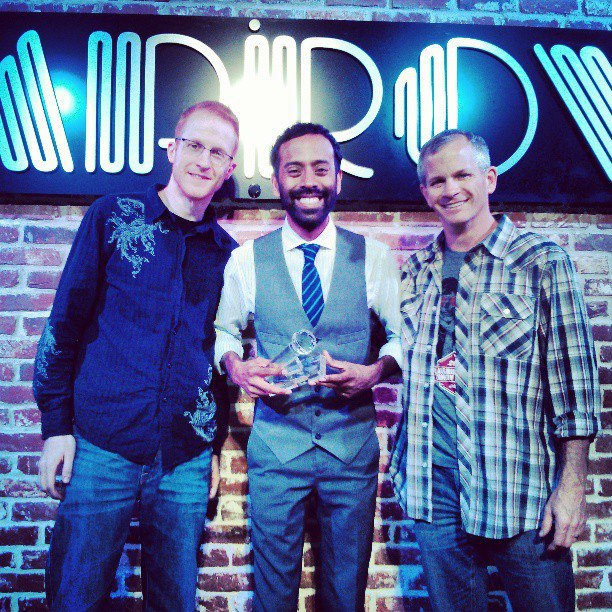
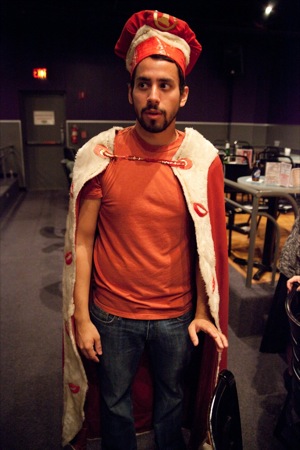
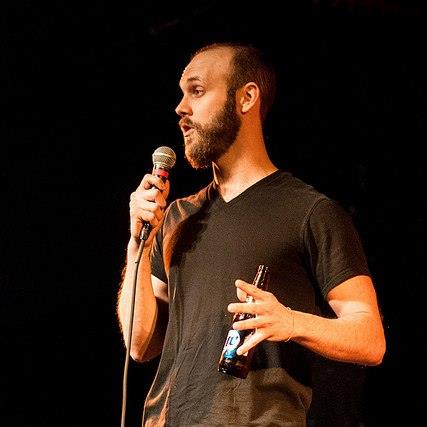
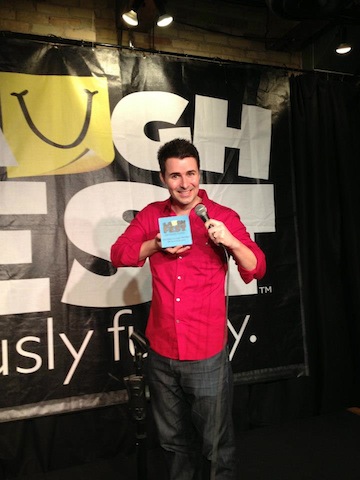
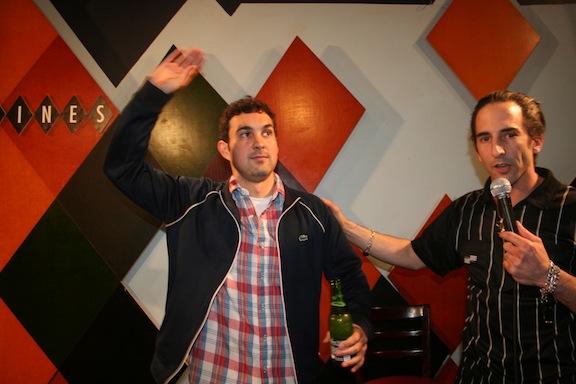
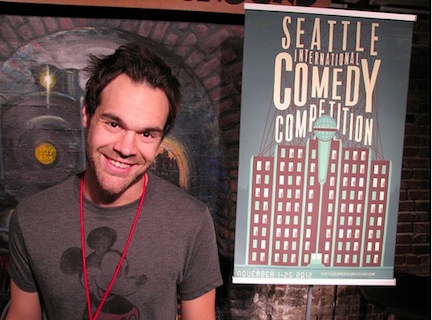
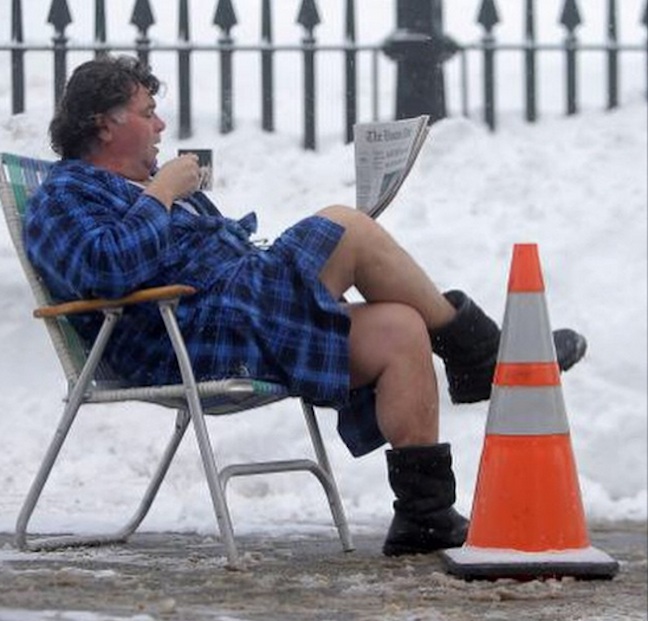
I liked the advice of Paul Oddo that a comedian should treat every round of the sets as though it is the only one he will be allowed to do. My brother has just started participating in stand-up comedy contests, and I am sure he will appreciate this tip. Thanks!